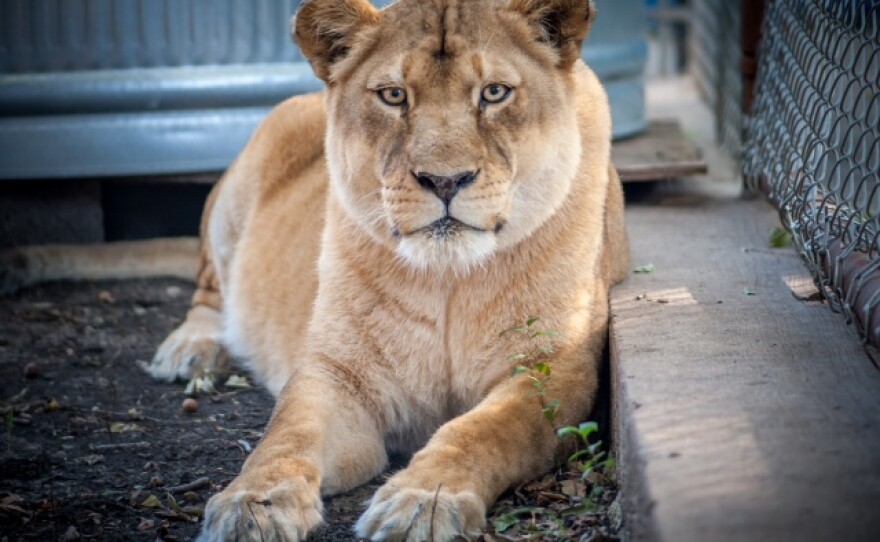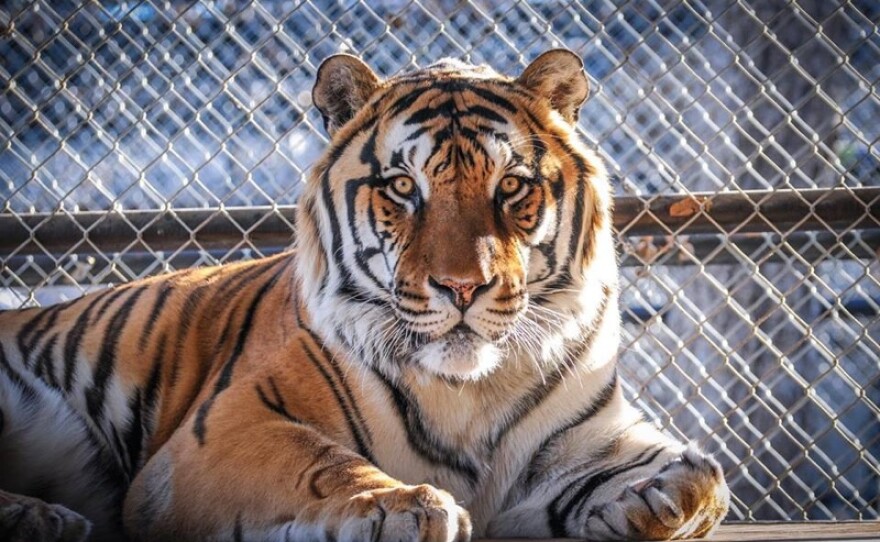Volunteers and staffers at an animal sanctuary in Wylie are on round-the-clock “cat watch” as they desperately try to control a canine distemper outbreak. So far it’s killed four big cats and sickened 18 others.
Roaring that rattles the fences and vibrates your toes is the norm at In-Sync Exotics Wildlife Rescue and Education Center. The Collin County sanctuary is far off the beaten path; home to everything from 600 pound white lions to a one-eyed lynx named Trooper.
Trooper and his pals spend their time in large, shaded enclosures. They lounge on raised platforms, woven out of fire hoses, bat plastic barrels around during playtime, and when the sun gets too hot, cool off in a paw shaped pool.
Staff members love their daily big cat soundtrack. But as she shows me around the sanctuary, Lisa Williams says it’s the quiet hovering over certain spots that’s really jarring.
“Before the distemper outbreak we had 61 cats. 32 of those are grouped as big cats, which is lions, tigers and leopards,” Williams said. “Of those 32 cats, 22 got sick with the distemper. Of those 22, we’ve lost four.”

It started with Apollo, a striking male tiger who died July 7. Williams says he was his happy affectionate self the night before, but things went downhill fast.
“About 1 a.m. he had a seizure, and it was the first seizure he had had, and it was a doozy. What was going on inside his body was so bad that it twisted his intestines up. It twisted his insides up so they had to do emergency surgery and untwist them,” Williams says. “And then they brought him back home and they thought the surgery was going to be successful. But just about 10 minutes later, he stopped breathing.”
Lioness Layla died a few days later, followed by two more tigers, Abrams and Harley.
Eighteen animals are still sick, some of them critically. And because canine distemper is a virus, all staffers and volunteers can do is help the cats ride it out.
“We’re doing supportive care, the sick ones are on antibiotics to ward off any secondary infections, and then they’re on a ton of vitamins, supplements, minerals, things like that,” says Williams.
She says the virus was most likely brought into the sanctuary by raccoons that run along the top of enclosures.
Volunteers take turns spending the night to keep constant watch over the sickest cats and try to get them to take their pills.
“We love these guys so much and it’s heartbreaking to watch them go through this. And there’s just not a lot we can do about it,” says Williams. “I mean we can do what we can do, and we are doing it. But, you know you can sort of overpower a toddler that doesn’t want to take their medicine, or y0u can reason with a teenager? You can neither overpower, nor reason with a tiger. You don’t get a tiger to do what a tiger doesn’t want to do.”
Click here for a list of supplies on the sanctuary's wish list.






